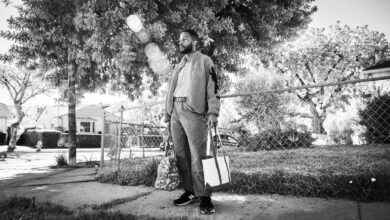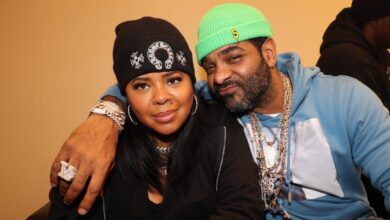Sasha Merci on how comedy helped her recover from depression

During Mental Health Awareness Month, we asked Latinx comedians and creators we admire how comedy has helped them overcome trauma and face their most important challenges. how in life. Read the sections here.
One of the things I love about comedy is how it combines my personality with my cause. I was diagnosed with depression when I was 14, a time when I began comparing my life to the lives of my high school peers and quickly noticed the differences. At that time, most of my peers had never experienced a loss as significant as I had. While they were preoccupied with clothes, gossip, and pop culture, I struggled with thoughts of death. This paralysis by conventional concerns plunged me into a deep existential crisis.
My struggle with depression began early in life with the passing of several family members, including my mother and grandmother. Processing these losses takes years of therapy. Being a comedian has allowed me to piece together memories like a puzzle to grasp the bigger picture of my life. Each time I unravel the layers of my experiences, I discover the humor hidden within them.
When I was a young girl, I didn’t know my biological mother had passed away; I was told to call my grandmother Mama. Even though there was a photo of another woman on her mantle like mine, my grandmother still avoided the question every time I asked about her. She was a master at making me feel appreciated and special and was always willing to listen to me talk, calling me little Cotorra.
I’m not sure if I had a natural sense of humor, but my grandmother definitely saw a big personality in me and nurtured it. I would gauge her reactions and laughter to adjust my storytelling. Whenever we had guests, she would remind me: “Sasha, ven acá, dile lo que me dijiste!” signaling that it’s show time. I remember lighting up a room for the first time, imitating television characters and celebrities, thinking that all of America was glamorous Hollywood, unlike my birthplace of the Bronx, NY.
My grandmother died of colon cancer shortly after we moved from the capital of the DR, Santo Domingo, to New York. It was around this time that I finally learned about my late biological mother. Going from a lamp in the room to feeling like an elephant in the room, I moved in with my dad, his wife, and their children. I was clearly reminded that I was the product of an affair. In that family, I learned to use my sense of humor to survive, defuse tension, and generally make fun of myself during one of the most emotionally isolating periods of my life.
In high school, I struggled to fit in because of the losses I experienced as a youth. I feel jealous because I don’t have a nuclear family. It’s a constant reminder to me of what I’ve been missing. When I was young, I felt my mortality deeply, knowing that no matter how much I prayed, my loved ones would never return. Not many of my colleagues at the time could relate to it. As a result, I began to dissociate from my reality and use humor as a way to entertain others to distract myself from the pain. This only worked until I realized I was the only one not smiling. I began to find my true comedic voice after discovering comedy on YouTube. It became a coping mechanism and a turning point for me. At age 15, I immersed myself in all kinds of comedy – movies, sitcoms and sitcoms. Comedy, in particular, has taught me that pain has its rightful place in the world.
Now, I view my family dynamics as a sitcom, typical of many immigrant American families with strong hierarchies. We use humor as a form of transgression, directly addressing controversial topics such as gender and politics. Our disagreements are not a reason to lose connection but an opportunity to engage with the chaos and find humor in it.
Comedy became a therapeutic tool when I began using it to express myself through exaggeration, irony, and comparison, building a community that helped me fight depression during difficult times. towel. Comedy allows for relatability. Feeling like someone understands where you’re coming from can often help you heal. In 2015, I used Instagram to share my stories and opinions while bringing humor to my followers. After joining the platform for a short time, my content started going viral and helped launch my career as a comedian and actor.
Comedy is an essential space for Latinos, especially immigrants and their descendants. It allows us to tell our stories, celebrate our dual identities, and face the challenges of navigating two worlds. It reflects our resilience, our ability to find joy amid adversity, and our constant pursuit of vision and understanding in a society that often marginalizes our voices.
Nowadays, I consider the good and bad moments in life as material, which inspires me to write down thoughts and ideas. Managing my mental health involves a delicate balance between honoring my cultural and family roots alongside my personal aspirations. Protecting your peace is important, but not when you isolate yourself in a bubble. Humor lives in my daily life; it is found in the mundane, the painful, and the unexpected. I encourage others to rely on it; It might inspire your next documentary. A good comedian is impressive, relatable and provocative, and I commit to being all of these things.
Comedy has taught me to appreciate life and avoid comparison, because comparison is the thief of joy, and it’s hard to feel discouraged when living in gratitude.




